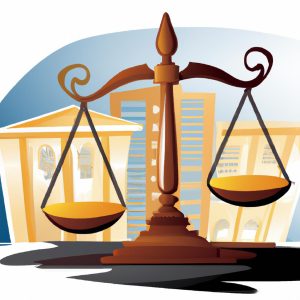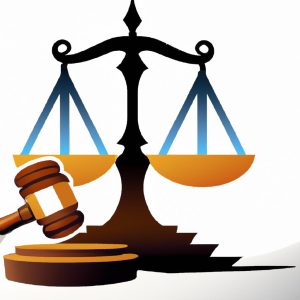Determining the appropriate beneficiary for your assets is a crucial decision in any estate planning endeavor. As experienced attorneys at Morgan Legal Group in New York City, we understand the complexities and nuances that come with selecting beneficiaries for your various accounts, policies, and assets. From navigating the intricacies of probate to ensuring your wishes are accurately reflected in your documents, our team is well-equipped to provide you with expert guidance in this critical aspect of estate planning. Join us as we delve into the considerations and factors to weigh when deciding “who should I put as my beneficiary
Considerations for Choosing the Right Beneficiary
When choosing the right beneficiary for your estate, there are several important considerations to keep in mind. It is crucial to carefully think about who you want to inherit your assets and make sure you have a clear understanding of the implications of your decision. Here are some key factors to consider:
- Relationship: Consider the nature of your relationship with the potential beneficiary. Are they a family member, close friend, or charity? Make sure to choose someone who you trust and who will honor your wishes.
- Age and Health: Take into account the age and health of your chosen beneficiary. If you are leaving assets to a minor, you may need to set up a trust to manage the inheritance until they reach a certain age.
Another important consideration is to update your beneficiary designations regularly to reflect any changes in your life circumstances. Make sure to review and update your estate plan after major life events such as marriage, divorce, or the birth of a child. Consulting with an experienced estate planning attorney can also help you navigate the complexities of choosing the right beneficiary and ensure that your wishes are carried out according to your estate plan.

Factors to Think About When Designating a Beneficiary
When designating a beneficiary, there are several important factors to consider to ensure that your assets are distributed according to your wishes. One key consideration is the relationship between you and the potential beneficiary. You may want to name a family member, close friend, or charitable organization as your beneficiary. It is crucial to think about who you trust to handle your assets responsibly and who you believe will benefit the most from receiving them.
Another factor to think about is the financial situation of the beneficiary. Consider whether the individual or organization you are designating has the ability to manage the assets effectively. Additionally, it is important to review and update your beneficiary designations regularly to account for any life changes, such as marriage, divorce, births, or deaths in the family. By carefully considering these factors, you can ensure that your assets are distributed in a way that aligns with your values and goals.

Tips for Ensuring Your Beneficiary Designations Align With Your Estate Plan
When it comes to estate planning, one of the most important decisions you will make is who to designate as your beneficiaries. It is crucial that your beneficiary designations align with your overall estate plan to ensure your wishes are carried out as you intended. Here are some tips to help you make sure your beneficiary designations are in line with your estate planning goals:
- Review Regularly: It is important to review your beneficiary designations regularly, especially after major life events such as marriage, divorce, or the birth of a child.
- Be Specific: When designating beneficiaries, be as specific as possible to avoid any confusion or disputes down the line.

Common Mistakes to Avoid When Naming a Beneficiary for Your Assets
When naming a beneficiary for your assets, it is crucial to avoid common mistakes that could have serious consequences for your estate plan. One common mistake to avoid is designating a minor as a beneficiary without setting up a trust to manage the assets until they reach the age of majority. If you fail to do so, the court may have to appoint a guardian to oversee the inheritance, which can be costly and time-consuming.
Another mistake to avoid is failing to update your beneficiary designations after major life events, such as marriage, divorce, or the birth of a child. If you overlook these changes, your assets may not be distributed according to your wishes. It is important to regularly review and update your beneficiary designations to ensure that your assets are passed on to the right individuals.
Q&A
Q: Who should I put as my beneficiary?
A: When selecting a beneficiary for your assets or life insurance policy, it’s important to consider factors such as their relationship to you, financial stability, and trustworthiness.
Q: Can I choose multiple beneficiaries?
A: Yes, you can designate multiple beneficiaries and specify the percentage of assets each individual will receive. This can be a good option if you want to divide your assets among family members or loved ones.
Q: What if my beneficiary predeceases me?
A: It’s crucial to regularly review and update your beneficiary designation to ensure it reflects your current wishes. If your primary beneficiary predeceases you, the assets will typically pass to your contingent beneficiary, if you have designated one.
Q: Should I consider naming a charity as my beneficiary?
A: Naming a charity as your beneficiary can be a meaningful way to support a cause you care about. Be sure to provide the charity’s full legal name, address, and any other necessary details when listing them as a beneficiary.
Q: What if I want to change my beneficiary?
A: You can typically change your beneficiary at any time by updating your beneficiary designation form with your financial institution or insurance company. It’s wise to periodically review and update your beneficiary designation to ensure it aligns with your current wishes.
The Way Forward
In conclusion, choosing a beneficiary is a deeply personal decision that requires careful thought and consideration. Whether you decide to designate a family member, friend, or charitable organization, it is important to review and update your beneficiaries regularly to ensure that your wishes are carried out. By taking the time to plan ahead and communicate your preferences, you can provide peace of mind for yourself and your loved ones. Thank you for reading and good luck in selecting the best beneficiary for your needs.







